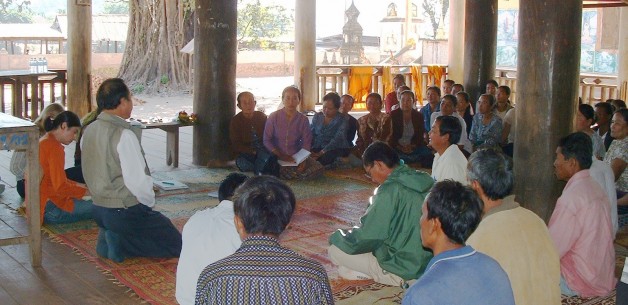If key changes are not made to the World Bank’s proposed new safeguards, the updated framework could prevent communities from meaningfully participating in the development process.
U.S. law and longstanding World Bank practice have recognized for decades the importance of providing communities with enough time to understand and voice concern about potentially harmful projects. Procedural requirements mandating key risk and mitigation documents be disclosed early in the project cycle ensure that people who stand to be negatively impacted can meaningfully engage when the Bank has maximum leverage over the design of the project. These requirements, however, are absent from the draft framework that is set to be approved by the World Bank’s Board of Directors in the next few weeks.
The new safeguards framework would replace current Bank practice of requiring early disclosure with an “adaptive management” process that prioritizes oversight of a project after it has already been approved—when the political power of the Bank to effect change in a project is at its weakest. This shift threatens to weaken the framework as a whole, and must be addressed before it is approved. To ensure the updated safeguards live up to their name, they must include clear language requiring that actual risk and mitigation documents, including full Environmental Impact Assessments, Resettlement Action Plans and Indigenous People’s Plans—not edited summaries—are disclosed prior to the Bank’s appraisal of a project and at least 120 days before a project is approved.
Countless analyses of Bank projects have shown that disclosure prior to appraisal is a crucial procedural protection on which the rights and wellbeing of communities depend. Without a mandatory disclosure time period for risk and mitigation documents, the Bank risks rolling back progress made over the last thirty years to avoid the worst impacts associated with its projects—including mass forced displacement, loss of livelihoods, and further impoverishment—that undermine its central mission of reducing poverty.
The updated safeguards should genuinely reflect the values and priorities the World Bank claims to aspire to, including transparency, sustainability, and high standards. The Bank should use this opportunity to ensure the updated safeguards once again position it to be a leader in sustainable, effective development finance that supports its goal of reducing poverty. Including a mandatory requirement for disclosure of risk and mitigation documents that provides communities a chance to meaningfully participate in the development process that profoundly impacts them is one small but powerful step that must be taken when the safeguards are approved.

